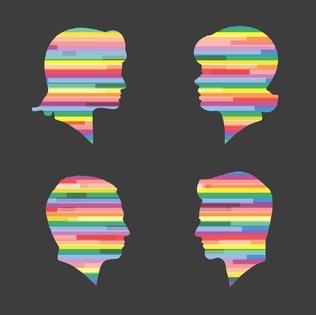 Which is why I try not to get on Macklemore's case too much, especially since he's already come in for his fair share of flak on a number of fronts anyway. I think he genuinely means well. But no matter how well-intentioned Sunday night's matrimonial spectacle was, it seemed to miss a few marks.
Which is why I try not to get on Macklemore's case too much, especially since he's already come in for his fair share of flak on a number of fronts anyway. I think he genuinely means well. But no matter how well-intentioned Sunday night's matrimonial spectacle was, it seemed to miss a few marks.
The mass marriage ceremony, and the success of "Same Love" more broadly, have been taken as cheering signs of progress. To an extent they are. In 2004, being anti-gay was enough to tip an election and ban gay marriage in 11 states. In 2014, it's legal in 17 — and could soon be legal in all 50 if the Supreme Court weighs in. Polls are consistently showing majority support for marriage equality — but therein lies a problem.
The Grammys show may have been a sign of progress, but it's hardly a courageous to take a stand — if it's even a stand at all? — for an issue that's essentially won over public opinion. Particularly when the polls also show opposition to marriage equality is demographically doomed and quite literally dying.
Furthermore, I have to wonder if the intentions behind the Macklemore-Madonna spectacle entirely were in the right place. As The Atlantic's take on it points out:
...the mass marriage that took place to Macklemore’s "Same Love” and Madonna’s “Open Your Heart” towards the end of the night Sunday wasn’t really for the people getting hitched. They were props. It wasn’t really for gay rights either. Any public good that potentially came from the moment—maybe someone at home changing their attitudes about same-sex marriage—were side effects. The main reason for the nuptials, it seemed, was to give the musicians on stage and recording-academy members a chance to announce themselves as good people.
The LGBT community needs allies — on issues extending far beyond marriage equality. But we need allies that recognize their role as allies: offering support, offering resources, without using the community as a prop for their own attention or self-comfort. In short, allies who remember who they're fighting for.
This isn't a new occurrence among LGBT allies: consider Cory Booker's showy and sorta awkward marriage officiating in October, or when the It Gets Better Project became a requisite campaign stop for every straight Democratic politician, making the project's original point sort of murky. Nor is it an occurrence unique to LGBT allies: it seems that most social justice causes attract people who get too caught up in the fashionableness of the cause.
Which isn't to dismiss allies, or to condemn Macklemore and other showy allies as entirely ill-intentioned and harmful. Allies are good. We need them. But we also need them to be humble. We need them to remember that this is about our community, to truly remember that we are human beings with needs and rights and voices, not anonymous props in an abstract cause.
We need allies. But we already have ourselves — we don't need those allies to replace us.
No comments:
Post a Comment